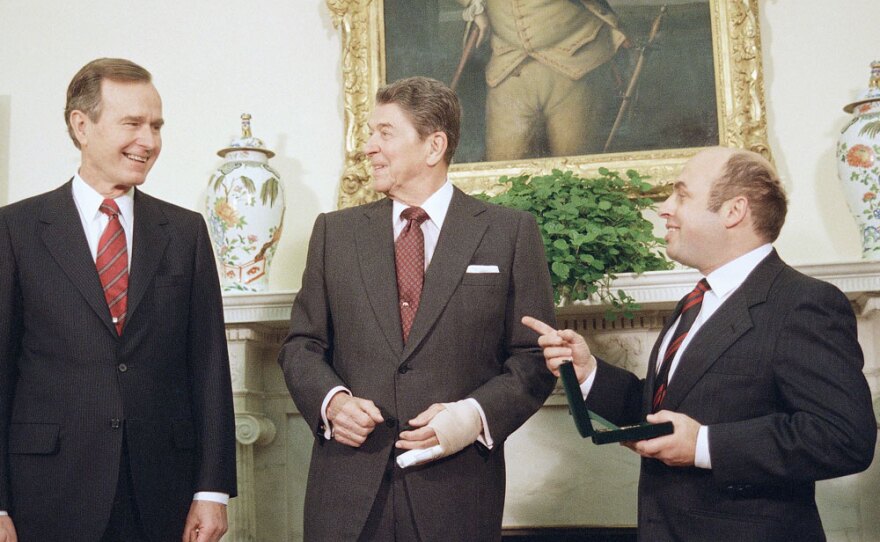It's a story that has it all: Undercover spies embedded in suburbia, a modern-day Mata Hari with a Facebook page, a key figure who jumped bail and is still on the run.
And it all culminated Friday on an an airport tarmac in Vienna, Austria. The U.S. traded 10 Russian agents for four Russians accused of spying for the West. It was the biggest "spy swap" since the 1980s, and the echoes of the Cold War were inescapable.
Jeffrey Smith was the lawyer who negotiated a handful of exchanges for the State Department in the 1970s and '80s; the most prominent one involved the Ukranian Jewish dissident Anatoly Sharansky, who later moved to Israel and changed his name to Natan Sharansky.
"We would develop a list of individuals in our custody," Smith tells NPR's Lynn Neary. "Then we would develop a list of persons whom we wanted in the East. Most of the negotiations were conducted with a lawyer in East Berlin named Wolfgang Vogel. I would travel to Berlin and we would meet in his office in East Berlin. And he would have a list and I would have a list. And we knew his office was bugged."
We would be talking about one name but pointing to another ... So we began to engage in the dance of two pens.
That made communication between Smith and Vogel tricky, but the two found a way. "We would talk, but we would also point to the two lists, and he would reach over with his pen and sort of tap a name on my list, and I would do the same on his list, because we didn’t want his spymasters to know exactly what he was saying to me," Smith says.
"We would be talking about one name, but pointing to another. It was a way of him signaling to me what his bottom line was that he had gotten in his negotiating instructions. So we began to engage in the dance of two pens."
Smith said he and Vogel developed a good friendship over time, so good they eventually bought each other gifts. One Christmas, Smith gave Vogel several frozen Butterball turkeys, because they were hard to get in East Germany.
Exchanges were "less dramatic from the spy perspective as it was from the human perspective," he says. Prisoners returned to the Soviet Union by the U.S. had mixed emotions.
"The ones that we were returning were not certain how they would be treated when they got home," Smith says. "Those were brutally repressive regimes, and the fact that they had been caught in the West – they had no confidence that they would be treated well."
Prisoners released to the West. however, had different reactions, Smith says. "What was exciting was when people would come across. The sheer joy of coming into freedom in the West was what made it worthwhile."
Copyright 2022 NPR. To see more, visit https://www.npr.org. 9(MDAzMjM2NDYzMDEyMzc1Njk5NjAxNzY3OQ001))






